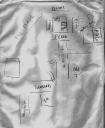Reclaiming African American History | Janet Bell | Janet Bell Interview | Ruth Hodge | Ruth Hodge Interview
Janet Bell was born and raised in Carlisle, PA. She grew up in what was then called “The Neighborhood,” a section of town where the Black community resided. The “Neighborhood” was comprised of Penn Street, West Street, Lincoln Street and Pitt Street. In the “Neighborhood” the church was an integral aspect of community life. Janet recounted how her home church, West St. A.M.E. Zion Church, would hold bake sales and rummage sales and would engage the community with a variety of events. As a child she remembers dinner sales and dances at the local Police Athletic League (PALs)[1], playing hopscotch and jacks on her front porch and playing baseball in the local cemetery. “Unfortunately, because of the “Neighborhood,” we used to play in the cemetery. [We] used the tombstones for markers, or for when you played baseball. There was just no playground. We had no playground. Unless you had something in your backyard. So most times we used to sit out on the porch and play jacks, marbles, hopscotch.”[2]
Audio clip of Janet Bell describing part of her childhood.
[audio:https://blogs.dickinson.edu/carlislehistory/files/janet-bell-audio-clip.mp3]Because there was no playground for the children, they had nowhere else to play. Everything was centrally located and people did not wander far from their social surroundings. In speaking of the segregation that existed in the town, she replied, “You just knew where you were to go and where you didn’t go. It was just an understood thing.” [3]
Audio clip of Janet Bell speaking about segregation in Carlisle.
[audio:https://blogs.dickinson.edu/carlislehistory/files/janet-bell-segregation.mp3]Higher Education
As time went on, many of Janet’s peers went on to pursue a higher education outside of Carlisle. They would leave for places like Virginia and Maryland and New York “…. because the opportunities were greater in other places.” Many would not return to Carlisle in order to take advantage of what was available elsewhere. [4] As she grew older she went to high school, began working and spent a few years studying at the Harrisburg Area Community College (HAC).
Work and Research
She has held jobs at various businesses ranging from the Carlisle Tire and Rubber Company (now the Carlisle Tire and Wheel), JC Penny’s, the Carlisle Barracks and the telephone company. While she now works for a financial company, it is her unpaid work that makes a tremendous difference in Carlisle. Janet spends her free time searching through old newspapers and obituaries in an effort to reveal and uplift the erased histories of those buried in the African American cemetery. “I just sit and read papers, historical papers. I just have a love for it and I just want to finish it and honor these people for the life that they led and what they gave.”[5]
Audio clip of Janet Bell discussing her passion and paying homage to the history of the Carlisle residents she studies in her research.
[audio:https://blogs.dickinson.edu/carlislehistory/files/janet-bell-honor.mp3]Community Impact
Over the years she has found some five hundred obituaries and indexes documenting the lives of African Americans who have lived in Carlisle. With the histories she has uncovered she has made various presentations to her family, her church and the community at large in an effort to educate and teach about these important histories. Janet Bell has truly made an impact on her community for she helps revive these voices from the past and gives them life.
Audio clip of Janet Bell’s concluding words.
[audio:https://blogs.dickinson.edu/carlislehistory/files/janet-bell-concluding-words.mp3]Footnotes
1. “The Philadelphia Police Athletic League is an independent non-profit corporation committed to “Cops Helping Kids”… Each center is supervised by Philadelphia Police Officers who are assigned full-time to direct activities and oversee the young people. Programs include sports, educational and cultural opportunities. (Its goal is to) promote a better relationship between policemen and the youth of the community.”
http://www.phillypal.com/pal_about.php
2. Janet Bell, interview with Yazmin Watkins, October 23, 2007
3. ibid
4. This can be seen as one such later case of the Great Migration happening in Carlisle. The Great Migration of African Americans in the South and rural areas to Northern cities with more opportunity.
http://www.pbs.org/wnet/aaworld/reference/articles/great_migration.html
5. Janet Bell, interview with Yazmin Watkins, October 23, 2007


